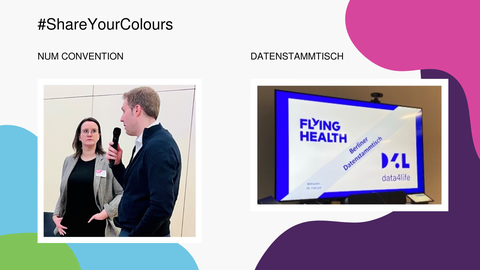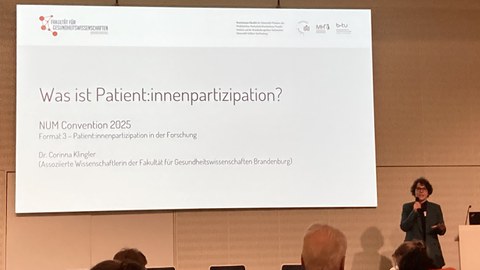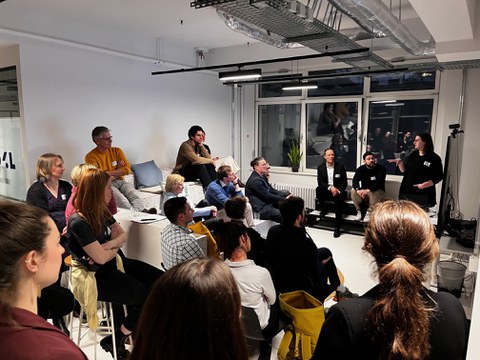Feb 28, 2025
Rare Disease Day
Rare diseases affect fewer than 5 in 10,000 people, but collectively, with over 8,000 different conditions, they are anything but rare. Those affected often face challenges such as late diagnoses, limited treatment options, and a lack of information networking. The Rare Disease Day, under the motto "Share Your Colours," on February 28, 2025, brings these issues to the forefront and raises awareness of the need for interdisciplinary research and innovative solutions.
Events from the Past Week
In line with this important day, two events took place this week that focused on research and digitalization in the context of rare diseases:
- NUM Convention 2025: During the session on patient involvement, Michele Zoch, together with Prof. Dr. Jannik Schaaf from the University Medical Center Frankfurt, moderated the discussion on "Digitalization." Key questions regarding the role of digital technologies in increasing the participation of patients with rare diseases in research projects were discussed.
- Data Roundtable by data4life: Under the motto "Breaking Down Data Silos” Michele Zoch spoke about "Secondary Data as a Gamechanger: New Perspectives for Rare Diseases." The presentation highlighted how better utilization of existing health data can lead to new research approaches and innovative solutions for diagnostic and therapeutic options.
Research on Rare Diseases at the Chair of Medical Informatics
Our Chair of Medical Informatics is dedicated to the intensive research of rare diseases, particularly through the use of secondary data. We consider the entire data flow—from documentation in clinical practice to integration and standardization, and finally to making it available for national and international research initiatives. The goal is to improve data interoperability through innovative approaches and to sustainably support research and care. We look forward to exchanging ideas and collaborating with researchers, patients, and partner institutions to further advance research on rare diseases.
For more information, please visit: > Link to the research team.



